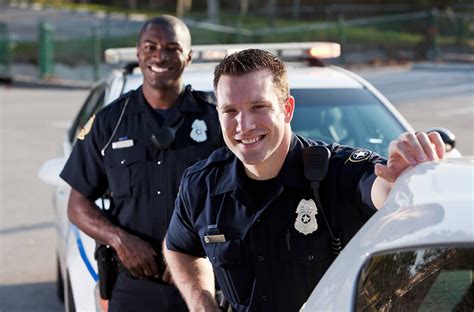Working Hours Of A Police Officer: Q&A

Being a police officer is a demanding and honorable profession. Police officers play a crucial role in maintaining law and order, protecting the community, and ensuring public safety. One aspect that many people are curious about is the working hours of a police officer. In this Q&A, we will explore the typical working hours, shifts, and schedules of police officers.
1. What are the typical working hours of a police officer?
The working hours of a police officer can vary depending on various factors such as the size of the police department, the nature of the assignment, and the specific jurisdiction. In general, police officers work in shifts that cover 24 hours a day, 7 days a week. This ensures that there is always a police presence to respond to emergencies and maintain public safety.
2. What are the different shifts that police officers work?
Police officers typically work in three main shifts: day shift, evening shift, and night shift. The day shift usually starts in the morning and ends in the afternoon, while the evening shift starts in the afternoon and ends in the late evening. The night shift typically starts in the late evening and ends in the early morning. These shifts rotate on a regular basis to ensure that all officers have a fair share of different shifts.
3. Are police officers required to work weekends and holidays?
Yes, police officers are required to work weekends and holidays. Law enforcement is a 24/7 job, and crimes and emergencies can happen at any time. Therefore, police departments ensure that there is sufficient coverage during weekends and holidays to respond to incidents and maintain public safety.
4. How long are the shifts of police officers?
The length of shifts can vary depending on the police department and the specific assignment. In some departments, shifts can be 8 hours long, while in others, they can be 10 or 12 hours long. The length of the shift also determines the number of days off that an officer gets. For example, officers working 10-hour shifts may have more days off compared to those working 8-hour shifts.
5. Do police officers work overtime?
Yes, police officers often work overtime. Overtime can occur when an officer is required to work beyond their regular shift due to emergencies, special events, or staffing shortages. Overtime is compensated with additional pay or time off, depending on the policies of the police department.
6. Are there any variations in working hours for specialized units?
Yes, specialized units within the police department may have different working hours compared to patrol officers. For example, detectives, crime scene investigators, and other specialized units may work regular business hours, while SWAT teams or specialized task forces may have irregular working hours depending on the nature of their assignments.
7. Are there any opportunities for flexible schedules for police officers?
Some police departments offer flexible schedules for officers, especially those with seniority or in specialized units. This can include compressed workweeks where officers work longer shifts but have more consecutive days off, or alternative schedules such as 10-hour shifts instead of 8-hour shifts. However, the availability of flexible schedules may vary depending on the policies of the specific police department.
8. How does shift work affect the personal lives of police officers?
Shift work can have an impact on the personal lives of police officers. The irregular working hours and rotating shifts can make it challenging to maintain a regular routine, spend time with family and friends, or participate in activities outside of work. It requires adaptability and effective time management skills to balance work and personal life.
9. How do police departments ensure continuous coverage with shift work?
Police departments utilize shift schedules and rotation systems to ensure continuous coverage. These schedules are designed to distribute work hours fairly among officers and ensure that there is always a sufficient number of officers on duty. Shift supervisors and administrators are responsible for managing and coordinating the shift schedules to maintain adequate staffing levels.
10. Are there any additional factors that can affect the working hours of police officers?
Yes, there are additional factors that can affect the working hours of police officers. These can include staffing shortages, emergencies or major incidents that require additional resources, special events or protests that require increased police presence, and the needs of the community. Police departments need to be flexible and adaptive to respond to these factors and ensure public safety.
Conclusion
The working hours of a police officer can vary depending on factors such as the size of the police department, the nature of the assignment, and the specific jurisdiction. Police officers work in shifts that cover 24 hours a day, 7 days a week to ensure continuous coverage and public safety. Shift work can have an impact on the personal lives of police officers, and departments may offer flexible schedules for officers in specialized units or with seniority. Despite the challenges, being a police officer is a rewarding profession that requires dedication and a commitment to serving the community.
Frequently Asked Questions
- Do police officers work weekends and holidays?
- What are the different shifts that police officers work?
- How long are the shifts of police officers?
- Do police officers work overtime?
- Are there any opportunities for flexible schedules for police officers?
- How does shift work affect the personal lives of police officers?
- How do police departments ensure continuous coverage with shift work?
- Are there any additional factors that can affect the working hours of police officers?
